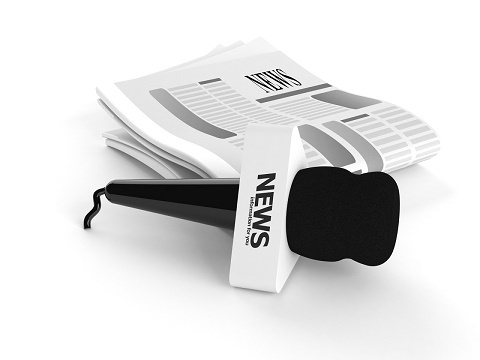
Guaranteeing the Safety of Journalists: West African experts share perspectives
Click to read all about coronavirus →
In times of crises such as the COVID-19 pandemic, the media, and in effect journalists, are a lifeline for citizens. They serve as critical avenues and channels for the provision of needed public health education and information that help people to stay healthy and safe. At the same time, they help hold governments accountable for how they respond to the crises and how they utilise resources meant for tackling the crisis.
Despite their crucial role, journalists have often been the subjects of threats, attacks, arbitrary arrests and detention in some cases even murder. The COVID-19 pandemic has further worsened the plight of journalists. Besides dealing with the trauma of putting themselves at risk of contracting the virus, acts of COVID-19 related violence against journalists across West Africa have been on the rise.
In Nigeria alone, more than 20 journalists have been victims of COVID-19 related abuses in the last 10 weeks. Similar forms of violations have been recorded in nearly all countries in the region albeit at a lesser scale to that of Nigeria.
To help deal with the serious implications of the COVID-19 pandemic on the media environment in West Africa, the Media Foundation for West Africa (MFWA) has commenced a series of webinars to seek expert views and proposed solutions to the challenges.
The first in the series of webinars was held on Thursday, May 21, 2020, under the topic: “Safety of journalists and COVID-19 in Anglophone West Africa.”
The Speakers at the webinar were Francis Sowa, Chairman of the Media Reform Coordinating Group (MRCG), Sierra Leone; Lanre Arogundale, Executive Director of International Press Centre (IPC), Nigeria; and George Sarpong, Executive Secretary of the National Media Commission (NMC), Ghana. The discussion was moderated by Executive Director of the MFWA, Sulemana Braimah and featured journalists, media academics, activists and union leaders as participants.
Speaking about the situation in Sierra Leone, Francis Sowa explained that a state of emergency in the country meant to stop the spread of the virus was curtailing freedoms of citizens including journalists who were unable to move freely to gather information He highlighted the launch of a corona response committee by the Sierra Leone Association of Journalists (SLAJ) as one measure that was helping to mitigate the impact of the situation on journalists.
Touching on the relationship between media and security agencies in the context of COVID-19, Sowa said the rapport with the security agencies only existed at the higher level that is at the high command of the security agencies.
“In the case of Ghana what we can say for sure is that we have largely experienced a free environment for the practice of journalism,” said George Sarpong of Ghana’s NMC. He, however, acknowledged a few incidents of attacks on journalists in some parts of the country.
Sarpong added that in an attempt to curb fake news during the pandemic, the security agencies in Ghana had wanted to “rely on a provision in the Electronic Communications Act, to, as it were, seek to arrest and prosecute people who engage in the spread of false information.” He emphasised that in a public health crisis, there is a tendency to overlook human rights in the protection of public health but this should not be compromised.
In Nigeria, Lanre Arogundale of the IPC said the press freedom space in the country was already shrinking before the outbreak of the pandemic. He said it appeared security forces took advantage of the lockdown imposed on some cities in the country to abuse journalists.
He noted that violations against journalists came from many directions including terrorists, officers of security agencies, State Governors, among others.
Arogundade attributes several of the incidents of abuse to, among others, state security authorities acting on the orders of political players. “It’s this political attitude that has informed the conducts of the security agents when they are relating to journalists. That explains why despite the fact that journalists have been recognised as frontline workers they were still being prevented from moving during the curfew just a couple of days ago,” he said.
The big question was what can be done to halt the abuses against journalists in the region? The panel of experts shared the following recommendations:
Collaboration: There should be strong collaboration among media support organisations, state agencies and other actors to collectively tackle abuses against journalists. Such collaboration must involve regional and sub-regional bodies such as the AU and ECOWAS. There must be a collective position and voice speaking against abuses against journalists at all times.
Analysis and Frameworks: There is a need for a regional analysis of the impact of the pandemic on journalists safety and the overall media environment and coming up with a regional strategic framework for responding to the impact.
Strengthening relations between media and security agencies: Efforts must be made to strengthen relations between journalists and security forces in the respective countries to stem the tide of rampant attacks on journalists by security personnel. Such an effort needs to include capacity building for both journalists and security officials in their respective roles in the efforts to contain the pandemic.
Facilitative regulatory Approach: Media regulatory bodies need to move towards a more facilitative and conciliatory approach to media regulation, that enables smooth collaboration with the media industry to ensure free, open and sustained democratic media.
Capacity building: There should be rigorous capacity building for journalists on how to professionally cover the pandemic while staying safe. Such capacity building will include dealing with fake news and misinformation.
Support for media institutions: Governments and other actors should offer a safety support to media organisations.
Send your news stories to and via WhatsApp on +233 55 2699 625.